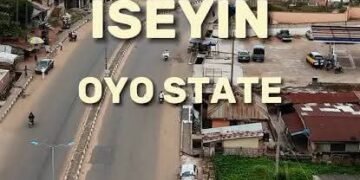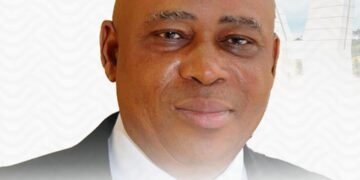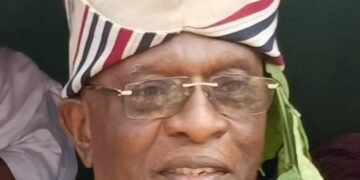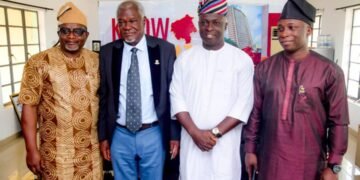When, lately, Nobel laureate Professor Wole Soyinka slammed former President Olusegun Obasanjo for trivialising the agitations of Nigerians on restructuring of the country, it only showed the keen interests by some Nigerians on necessity for reorganization of Nigeria. Soyinka for instance, said Nigeria was long overdue for reconfiguring, noting that only the dishonest citizens of the country would shy away from the need to de-centralise the country.
Indeed, some attributed Soyinka’s swift reaction to the age-long rift between him and the former President, but the truth is that many, all the same, never aligned with the stance by Obasanjo that Nigerians should rather restructure their minds and mentality instead of settling for restructuring of their country.
Professor Soyinka in a seeming fit of anger, descended on Obasanjo, describing his view point as dishonest, cheap and amounting to trivializing an issue of such great consequence. For Soyinka, it is all about ‘the protocols of association of the constitutive parts of a nation’. In his words, Nigeria is over-centralised.
Soyinka is not alone on this. Many Nigerians across the ethnic divides are. The agitation continues to sprout shades of issues and discusses that raise fundamental questions. There is the question of what exactly is the meaning and essence of restructuring?
For the purpose of this treatise, we provide Wikipedia’s interpretation: Restructuring is the corporate management term for the act of reorganizing the legal, ownership, operational, or other structures of a company for the purpose of making it more profitable, or better organized for its present needs.
Other reasons for restructuring include a change of ownership or ownership structure, demerger, or a response to a crisis or major change in the business such as bankruptcy, repositioning, or buyout.
There are striking take-home from the foregoing definition of restructuring. Of particular interest is the fact that restructuring is essentially necessitated by the purpose of making a structure more profitable or better organized for its present needs. Who then dare say the present political configuration of Nigeria isn’t an albatross. Not even the ruling All Progressives Congress dare denies it. As a matter of fact, the ruling All Progressives Congress (APC) has re-organisation of Nigeria as part of its manifesto. But it is unfortunate that it had to wait for Nigerians to initiate talks on it to gain the attention of the government.
Now the APC has been constrained by the sweeping agitations on restructuring to take a step. Almost reluctantly, the APC set up a panel to look into the agitations with intent to organise Public Hearings across the geo political zones beginning from September 18, 2017. According to APC, its ‘Committee on True Federalism’ will start the process of holding Public Hearing in the six geopolitical zones of the country, from Benin, the Edo State capital in the South South zone. Indeed, the ruling party should have seized the momentum and take the expected steps earlier.
Good as the initiative by APC sounds, there are pretenders who are out to heckle any positive response by the authorities to restructuring agitations. They should be prevented from politicizing a good cause meant to lay the future of Nigeria on a good line of hope. It is however, important that the Panel on Restructuring should place deeper attention on burning issues about restructuring which include; creation/merger of states, derivation principle, devolution of powers, status of the federating units, fiscal federalism, revenue allocation and the ideal system of government that is good for Nigeria.
Other issues, which should not escape the attention of the Panel, include; independent candidacy, land tenure system, local government autonomy, power sharing and rotation, resource control and type nature of parliament.
The issues have been recurring in past constitutional conferences, thus indicating that they are more contentious and should be addressed at the nick of time for peace to reign among the component units of Nigeria. In essence, it is important that the Committee on Restructuring led by the governor of Kaduna state, Mallam Nasir El-Rufai must show sincerity and commitment to national cause in the process of discharging the task it is saddled with.
Critics however, believed that the APC set up the El’Rufai’s Panel just to buy time to defeat the growing agitations for restructuring and lay to rest expectations on the 2014 Confab recommendations. They are convinced that after all Public Hearings had been held in designated zones, the end products may prove disappointing in which case the Report expected from the efforts would eventually be swept under the carpet at the expense of the tax payers money. However, the onus lies on the Panel to prove all doubting Thomas’s wrong by producing a credible and time tested recommendations meant to advance the national cause and meeting good expectations.
I salute and agree with the Sultan of Sokoto, Muhammadu Sa’ad Abubakar III and Emir of Kano, Muhammad Sanusi II CON , who, at different times, canvassed that some parts of the 2014 Confab report should be looked into as part of efforts to address the dilemmas on restructuring agitation.
At this point in time, all hands must be on deck as the APC and its government move to tackle the knotty issues on restructuring. Nigerians are to keep close tab on the El’Rufai Panel while making useful suggestions to encourage amicable resolution of contentious issues on restructuring. The committee on the other hand must be seen to be taking right steps while justifying the reason it was set up. It must aspire to meet the expectations of Nigerians in national interest since the outcome of its sittings can determine the next direction Nigeria will follow as a nation.
*Dr. Ajulo is the Principal Partner, Kayode Ajulo & Co. Castle of Law, Abuja, Executive Director, Egalitarian Mission for Africa and former National Secretary, Labour Party.













